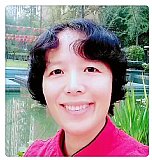Introduction
Mandarin Chinese, with its global influence and growing importance, has spurred the development of recognized proficiency language exams. These exams serve as benchmarks for evaluating individuals' Mandarin language skills and are widely recognized by educational institutions, employers, and language learners worldwide. In this post, we will explore some of the most recognized Mandarin proficiency language exams, highlighting their structure, levels, and significance.
HSK (Hanyu Shuiping Kaoshi):
The HSK, developed by Hanban, is the most widely recognized Mandarin proficiency exam. It assesses non-native speakers' abilities in listening, reading, and writing. The exam is divided into six levels, ranging from HSK 1 (basic proficiency) to HSK 6 (advanced proficiency). The HSK certificate serves as proof of Mandarin proficiency and is recognized by numerous Chinese universities, scholarship programs, and employers.
HSKK (Hanyu Shuiping Kouyu Kaoshi):
The HSKK focuses solely on assessing oral proficiency in Mandarin Chinese. It evaluates the test-takers' ability to speak and understand spoken Chinese. The exam consists of three levels: Beginner, Intermediate, and Advanced. The HSKK certificate is valuable for individuals seeking to demonstrate their Mandarin speaking skills for academic purposes or employment opportunities.
YCT (Youth Chinese Test):
The YCT is designed for young learners under the age of 15 who are non-native speakers of Mandarin Chinese. It assesses their proficiency in listening, reading, and writing. The YCT has four levels, ranging from YCT 1 (basic) to YCT 4 (advanced). This exam is widely used in educational settings to evaluate the Mandarin language skills of young learners.
BCT (Business Chinese Test):
The BCT evaluates Mandarin language proficiency required for business and workplace contexts. It assesses listening, reading, speaking, and writing skills specifically related to business communication. The BCT has three levels: BCT (A), BCT (B), and BCT (oral). Many organizations and employers recognize the BCT certificate as evidence of Mandarin proficiency in a business setting.
C.TEST (Chinese Test):
The C.TEST, developed by Hanban, is a comprehensive Mandarin proficiency exam. It evaluates listening, reading, writing, and translation skills. The C.TEST is commonly used by educational institutions and employers to assess candidates' Mandarin language abilities. It offers different levels, providing a reliable evaluation of proficiency in Mandarin Chinese.
Where to Take Official Mandarin Exams
Official Mandarin Chinese exams, such as the HSK (Hanyu Shuiping Kaoshi), HSKK (Hanyu Shuiping Kouyu Kaoshi), YCT (Youth Chinese Test), BCT (Business Chinese Test), and C.TEST (Chinese Test), can be taken at authorized testing centers worldwide. Here are some common options for taking these exams:
- Confucius Institutes: Confucius Institutes, established by Hanban (the Office of Chinese Language Council International), are dedicated to promoting Chinese language and culture globally. Many Confucius Institutes offer official Mandarin Chinese exams, including the HSK and other related exams. You can check if there is a Confucius Institute near you and inquire about exam registration and testing schedules.
- Confucius Classrooms: Confucius Classrooms are educational institutions that collaborate with Confucius Institutes to provide Chinese language and cultural programs. Some Confucius Classrooms also offer official Mandarin Chinese exams. Check if there are any Confucius Classrooms in your region and inquire about exam availability.
- Approved Test Centers: Apart from Confucius Institutes and Confucius Classrooms, there are other approved test centers that administer official Mandarin Chinese exams. These centers may include universities, language schools, or educational institutions that have been authorized to conduct these exams. You can search online for approved test centers in your area or contact local language learning institutions for information.
- Online Exams: In certain cases, online exams may be available for specific levels or sections of the official Mandarin Chinese exams. Online exams provide flexibility and convenience, allowing candidates to take the exams remotely. Check the official websites of the respective exams to see if online exam options are available and the specific requirements for online testing.
It's important to note that exam availability, registration procedures, and testing schedules may vary depending on your location. To ensure accurate and up-to-date information, visit the official websites of the respective exams, such as the Hanban website for the HSK and HSKK exams, or consult with local institutions that offer Mandarin language programs and certification. They can guide you on the specific procedures, requirements, and exam dates in your area.
Conclusion
These recognized Mandarin proficiency language exams play a vital role in language learning and proficiency evaluation. They offer standardized assessments and certification, allowing individuals to showcase their Mandarin language skills and enhance their academic and career prospects. By successfully completing these exams, individuals can demonstrate their commitment to mastering Mandarin Chinese, enhancing their competitiveness in academic applications, scholarship opportunities, job applications, and international exchanges. Moreover, these exams contribute to the standardization of Mandarin language education and promote a globally recognized measure of proficiency.















